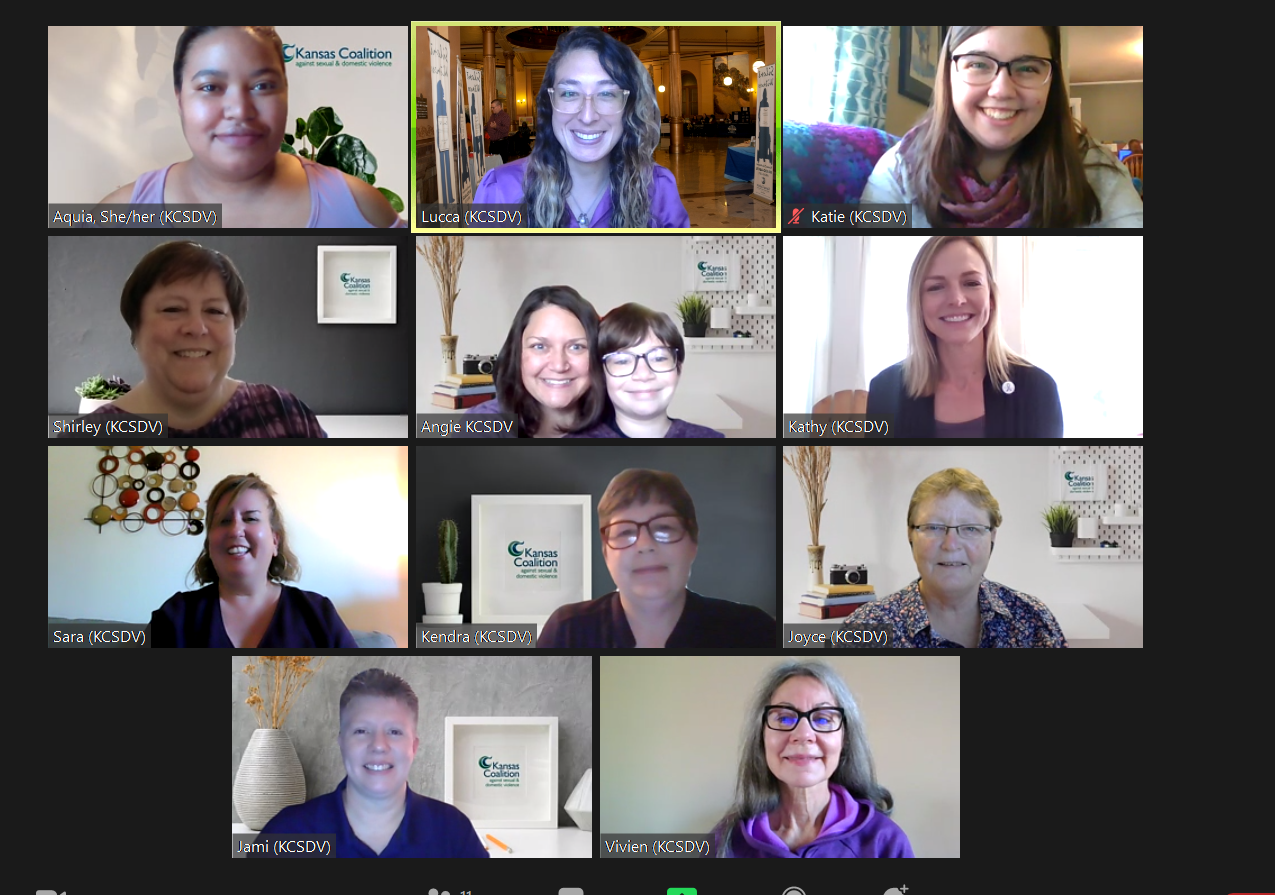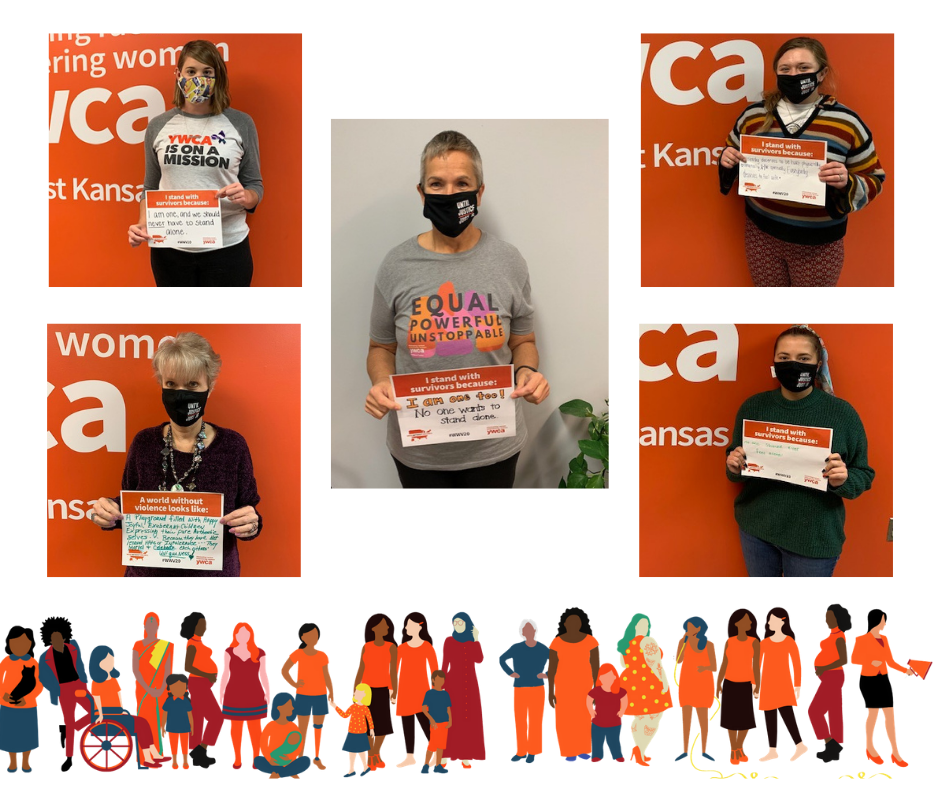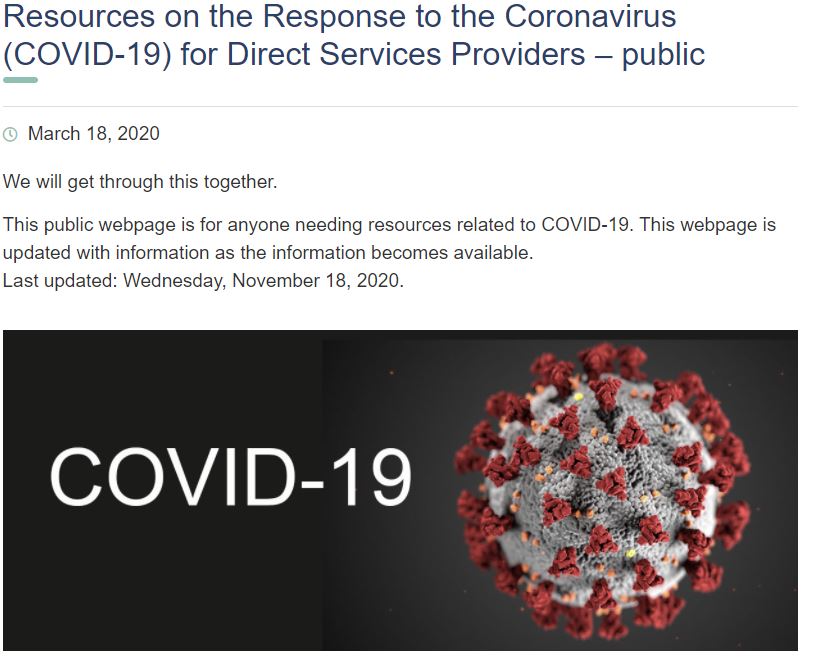COVID-19 and Services
- December 22, 2020
- Posted by: Lucca Wang
- Categories: 2020, All News & Blog Posts
Since mid-March, KCSDV, like others across the state, the nation, and the world, has been deep into the work of responding and adapting to the COVID-19 pandemic.

KCSDV staff began working remotely in mid-March. We cobbled together laptops and other equipment to make this happen. Gradually, with the support and flexibility of our state and federal funders, we were able to move budget items around, purchase additional computers and technology, and get staff settled for what we thought would be a few months of remote working. Nearly 8 months later, we have two sets of staff on opposing staggered schedules: While one works remotely, the other is in the office, and vice versa. (And, as this newsletter goes to publication, we have gone to our “more remote” plan with a few people in the office to keep things running fiscally and administratively.) KCSDV staff continue to adapt to new working conditions: children at home doing remote learning for school, isolation from family and friends, and much more.
In March, KCSDV immediately began weekly phone calls, which are now Zoom calls, with KCSDV coalition members located in cities and communities across the state.
From our vantage point, we could see that the immediate concerns in the early days were in urban areas and in rural areas where large meat production plants were located. Adaptation of domestic violence and sexual assault services looked very different in the urban areas of Kansas City, Topeka, and Wichita than they did in the more rural areas of southwest Kansas where the COVID-19 numbers in both places immediately spiked. These weekly KCSDV coalition member program calls allowed the coalition as a whole to convene regularly and share information and strategies to keep services open and staff and clients safe. Sexual assault and domestic violence services have been uninterrupted across the state. The dedication of advocates has been incredible. The commitment to the safety of survivors is unflagging.

KCSDV also convened a committee of Kansas advocates to work on general guidance for adapting services in the face of the pandemic.
The committee addressed remote services, confidentiality and privacy, congregate living and sanitation, cell phone use and security, safety planning for children in shelter, virtual services software and safety, and so much more.
KCSDV published a COVID-19 webpage on our website that pulled together these resources and others from the Kansas Department of Health and Environment (KDHE) and the Centers for Disease Control and Prevention (CDC). Our COVID-19 webpage includes resources in a variety of languages, resources for self-advocates and people with disabilities, resources specific to Tribal Nations and much more. KCSDV will continue to add to and modify information on this page.

When the initial state of emergency was issued, the numbers of victims and survivors contacting direct services providers immediately plummeted as people were asked to stay home and avoid contact with others.
Programs are accustomed to working at capacity all the time, so this was alarming. As those emergency orders loosened, the numbers of people contacting programs increased.
Over the last few months, the amounts of people seeking safe shelter have gone up and down, with some people being sheltered in non-congregate, or more isolated, settings like hotels. Sexual assault forensic medical exams, usually performed in hospital emergency departments, have gone through transitions and have seen the same trends in demand for services. But, the availability and work of providing direct services has never been interrupted.
Sexual and domestic violence victim advocates have continued to meet with people remotely, in person, on the phone, or through a virtual service, depending on the need. Services continue to be adapted to the circumstances in the community. The numbers of people in rural areas of Kansas who are now infected with COVID-19 has skyrocketed. Direct victim services providers covering those areas are ready and prepared to meet the needs of survivors.
KCSDV and KCSDV coalition member programs that make up this coalition will continue to adapt and will continue to assure that every survivor receives services and support every time. If you are a victim of domestic violence and/or sexual assault, do not hesitate to reach out to your local victim services program. We and they are here for you.
Newsletter (PDF) | On the KCSDV Website
This project was supported by Grant No. 2019-MU-AX-0021 awarded by the Office on Violence Against Women, U.S. Department of Justice. The opinions, findings, conclusions, and recommendations expressed in this publication are those of the author(s) and do not necessarily reflect the views of the Department of Justice, Office on Violence Against Women.
KANSAS CRISIS HOTLINE: 888-END-ABUSE | 888-363-2287
Last Updated on Dec 22, 2020